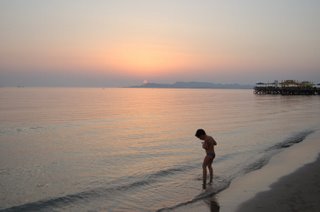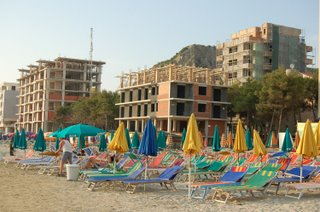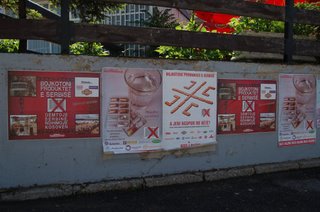Road trip to Albania
I just came back from a short trip to
Only a 10 hour drive (and 10 more on the way back), but a lot of stamps in my passport and some border anecdotes:
On the way there,

Albania is a country of contrasts and unfinished buildings.
As we were driving across the country, one of my Albanian travel mates was pointing at the hundreds of never finished buildings topped with the national flag that fill in the landscape and saying with a smile: “Albanians are optimistic people. They start building their houses when things seem to go better, but there’s never money enough to finish them”
With an economy traditionally agriculture based, this ex-communist country starts to show the “benefits” of capitalism and international intervention. Albania is still one of the poorest countries in Europe, but its capital, Tirana shows some of what at the eyes of Westerners is usually considered indisputable signs of progress and modernity; things like food chains, big expensive-looking new governmental buildings and a lot of construction being done everywhere by American-branded Caterpillar bulldozers. While I admire all that, about 5 different kids not older than 9 approach our group (Kosovar students in a study visit) selling anything from candy to cigarettes. One of my Kosovar friends tells me that the city is full of these street kids that live from charity; but, before I can inquire more about them, one of the well-dressed private security guards of a nearby official building washes the kids away…

On the coast of the
All this history coexists today with the epidemic of uncontrolled, fast construction that has turned the beaches around the city into that:

I spent some afternoons on the beach, with the monster-like forms of the buildings under construction right on my back, reviewing Michael Albert’s book PARECON, life after capitalism. My little symbolic act of resistance in this new paradise for the western and eastern Europe free-market sharks.
Check out all my pictures from the trip to Albania, and some new pictures from Prishtina here.





